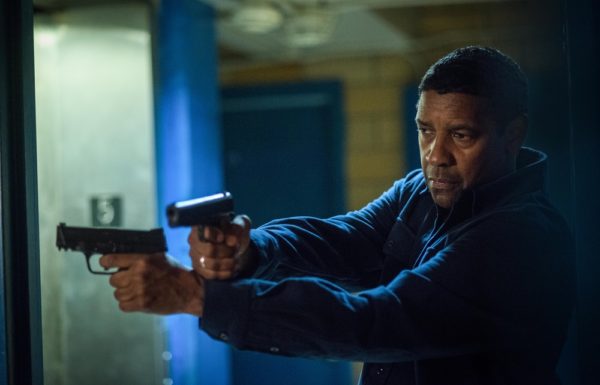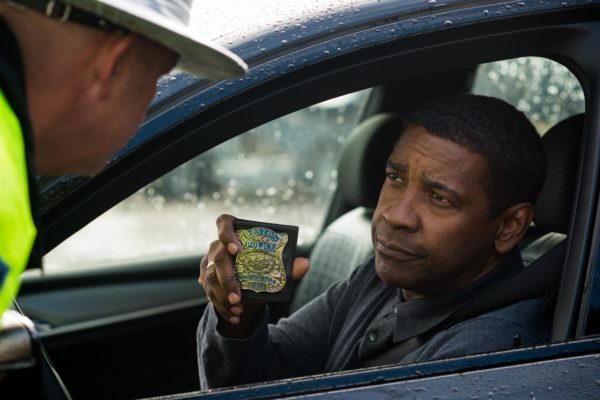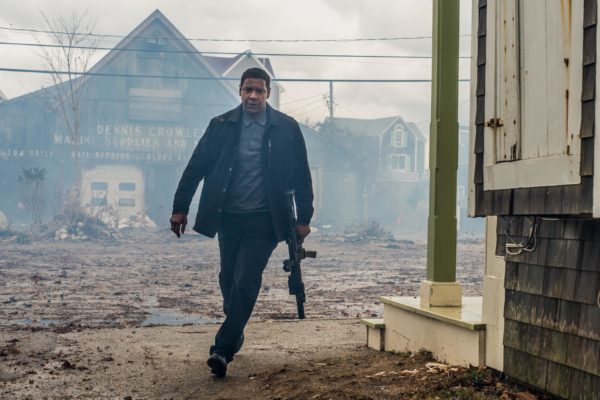The Equalizer 2, 2018.
Directed by Antoine Fuqua.
Starring Denzel Washington, Pedro Pascal, Ashton Sanders, Bill Pullman, Jonathan Scarfe, Orson Bean, Sakina Jaffrey, Caroline Day, and Melissa Leo.
SYNOPSIS:
Robert McCall serves an unflinching justice for the exploited and oppressed, but how far will he go when that is someone he loves?
Considering the rate Hollywood loves to turn everything into a franchise or an extended universe, it’s rather shocking that The Equalizer 2 marks the first sequel of Denzel Washington’s legendary award-winning career. Once again directed by his frequent collaborator Antoine Fuqua and written for the screen by Richard Wenk (based on the television show created by Michael Sloan), the potential for more stories was always there; there’s talent behind the camera, in front of the camera, and the first film functioned as a grounded and hyper-violent superhero affair. The latter is something I actually touched upon in my review for The Equalizer, and apparently, the filmmakers agree as at one point an artistic character is seeing envisioning the former CIA black ops operative in a drawing.
Picking things up a little while after the events of its predecessor, Robert McCall (Denzel Washington, collectively calm while dishing out bone snapping hand-to-hand combat with grace in only the way he can) is now a Lyft driver whenever he is not taking up contracts to help out the less fortunate, aka serving as an equalizer. In one of the film’s more electrifying sequences, we see McCall take out a group of corporate pigs who have gotten a woman absolutely wasted and presumably taken advantage of her sexually, and it’s the kind of material that makes the franchise continue to serve as more than a character study about a hitman with a dark past that includes being unable to rescue loves ones. While many communities are clamoring for a black Spider-Man, technically, we already have one; he just doesn’t have any actual powers gifted to him by a radioactive spider.
Continuing along with that thought, watching Robert McCall simply help people is easily the best aspect of both of these films. This time around, he’s reuniting family members and taking an interest in a young man named Miles (Ashton Sanders) who is brimming with artistic talent but is frustrated from being unable to find a way to use that to his advantage in paying bills and putting up food on the table for him and his mother. As a result, he is getting mixed up with a gang, to which Robert heavily disapproves of. And speaking of that, there is a heated exchange around the halfway mark where Robert goes on a tirade against those that pity themselves and make excuses for their own failures in life.
Among many of his noteworthy comments during this long-winded but socially relevant rant is something along the lines of “I don’t want to hear that the white man won’t give me any chances”. The reason I bring such a scene up isn’t just because it is undoubtedly going to spark controversy, but for the fact that this is a film directed by and starring a black man basically saying “stop pulling out cards to explain and poorly rationalize joining gangs and other dangerous behavior “. Not only is it definitely an unexpected moment (although it does fit with Robert McCall’s old-fashioned, hard-ass personality), but it’s a sign that this franchise isn’t afraid to start a dialogue and be more than about Denzel Washington starting his stopwatch and murdering everyone in sight.
However, Denzel does receive a number of action scenes including some satisfying ways to dispose of enemies (the climax to a car chase, in particular, is fantastic, and the sequel also tries to rework the same magic of the first’s ending by containing another segment that basically transforms Robert McCall into Michael Myers as he stalks his prey one by one until everyone drops and the day is saved). The problem is that none of these villains are worth caring about or have complex motives. Factoring in that the real entertainment from the series comes from witnessing Robert improve the community and people around him, well… it makes one wish that the story opted for a more freewheeling path instead of implementing a narrative of all. I will admit that the identity of the primary antagonist caught me off guard and is a well-written twist, but it also leaves no lasting impression and leads to nothing of substance. On top of that, the choreography of the fights pales in comparison to its predecessor.
Outside of the performance of Denzel Washington, which is obviously good, the only engaging dynamic here is Robert trying to set Miles on the right path. The Equalizer 2 is fairly boring whenever they aren’t interacting together; the mystery behind a key murder is rooted in tropes, the villains have nothing to do besides getting brutally murdered, and for all its competence as a filmmaking exercise, the sequel is just forgettable. The first film not only juggled all of these elements well enough, but it also felt more personal to the character of Robert McCall. With that said, there is definitely room for another entry so long as the filmmakers listen to feedback and analyze what works and what doesn’t.
Flickering Myth Rating – Film: ★ ★ / Movie: ★ ★
Robert Kojder is a member of the Chicago Film Critics Association and the Flickering Myth Reviews Editor. Check here for new reviews, friend me on Facebook, follow my Twitter or Letterboxd, check out my personal non-Flickering Myth affiliated Patreon, or email me at MetalGearSolid719@gmail.com















